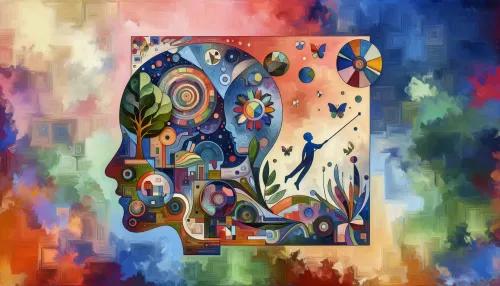
Dawn of Understanding: The Early Days of Autism Recognition

Autism, a complex neurodevelopmental condition, has a history shaped by significant advancements in understanding and recognition. The journey from the first cases to the modern understanding of autism spectrum disorder has been marked by pioneering minds, evolving diagnostic criteria, and the persistent advocacy of parents and activists. This article delves into the historical milestones that have paved the way for our contemporary comprehension of autism, shedding light on the key players and paradigm shifts that have reshaped early conceptions.
Tracing the History: The First Cases and Recognitions of Autism
The history of autism recognition dates back to the early 20th century, with some accounts suggesting that individuals exhibiting autistic features were documented in the 18th and 19th centuries. However, it was not until the 1940s that Dr. Leo Kanner and Dr. Hans Asperger independently described what we now recognize as autism. Kanner’s seminal work on "early infantile autism" and Asperger’s research on "autistic psychopathy" were pioneering efforts that laid the foundation for subsequent exploration and understanding of this complex condition.
Pioneering Minds: The Psychologists and Researchers Who Named Autism
Dr. Leo Kanner, a prominent child psychiatrist, published a groundbreaking paper in 1943, introducing the world to a new condition he labeled "early infantile autism." Meanwhile, in Austria, Dr. Hans Asperger conducted extensive research on children showing similar characteristics and introduced the concept of "autistic psychopathy." These early delineations by Kanner and Asperger were instrumental in bringing attention to a previously overlooked segment of the population.
From Misunderstanding to Insight: How Early Conceptions of Autism Shaped Future Research
The initial conceptualizations of autism encountered resistance and skepticism within the psychological community. Misconceptions and misunderstandings clouded early perceptions, leading to misconstrued beliefs about the causes and treatment of autism. However, the groundwork laid by Kanner and Asperger encouraged further investigation, initiating a shift from ignorance to enlightenment.
The Evolution of Diagnostic Criteria: A Timeline from the 1940s to Now
Over time, an evolving understanding of autism prompted revisions in diagnostic criteria. The Diagnostic and Statistical Manual of Mental Disorders (DSM) has undergone several updates to refine the characterization of autism spectrum disorders. These revisions reflect an improved comprehension of autistic traits and behaviors, striving for more accurate identification and support for individuals across diverse spectrums.
Breaking Stigmas: The Shift From Seeing Autism as a Disorder to a Spectrum
In earlier decades, autism was often perceived as a singular disorder with limited variation. However, extensive research illuminated the diverse manifestations within the autistic community, leading to a paradigm shift towards recognizing autism as a spectrum encompassing a wide range of abilities and challenges. This transition from a singular disorder concept to an inclusive spectrum perspective has fostered greater acceptance and appreciation of neurodiversity.
Key Milestones in Autism Research: Major Discoveries and Breakthroughs Over the Decades
Advancements in autism research have been punctuated by transformative discoveries. From elucidating genetic predispositions to unraveling neural connectivity patterns associated with autism, researchers have continued to unlock valuable insights into this multifaceted condition. Groundbreaking studies exploring gene-environment interactions, sensory processing differences, and social cognition have greatly expanded our knowledge base.
The Role of Parents and Activists in Advancing Autism Understanding in the Early Years
Parents and activists played a pivotal role in advocating for increased awareness and support for individuals with autism during the early years of recognition. Their unwavering dedication to highlighting the needs of autistic individuals resulted in pivotal legislative changes, educational reforms, and enhanced community inclusion initiatives.
Advocacy Begins: The Formation of the First Autism Support Organizations
The burgeoning awareness surrounding autism led to the establishment of pioneering support organizations dedicated to empowering families and individuals touched by autism. These grassroots efforts blossomed into global networks that continue to provide invaluable resources, guidance, and advocacy for individuals across all ages on the autism spectrum.
Reflections on Progress: How Early Perceptions Have Shaped Modern Views on Autism
The evolution of our understanding of autism has crucially relied on introspection regarding past perceptions. Reflecting on historical attitudes towards autism provides insights into present-day perspectives while emphasizing the pivotal role played by proactive advocacy, unwavering research efforts, and paradigm shifts towards inclusivity.
As we traverse through the annals of time, it becomes evident that each milestone in understanding autism has significantly contributed to shaping our present-day comprehension a tapestry interwoven with dedication, perseverance, and strides towards empathy-driven progress.
Check Out These Related Articles


Balancing Autistic Children's Daily Life: Understanding the Role of Routine and Structure

Exploring Everyday Challenges: Helping Autistic Children Thrive in a Neurotypical World
